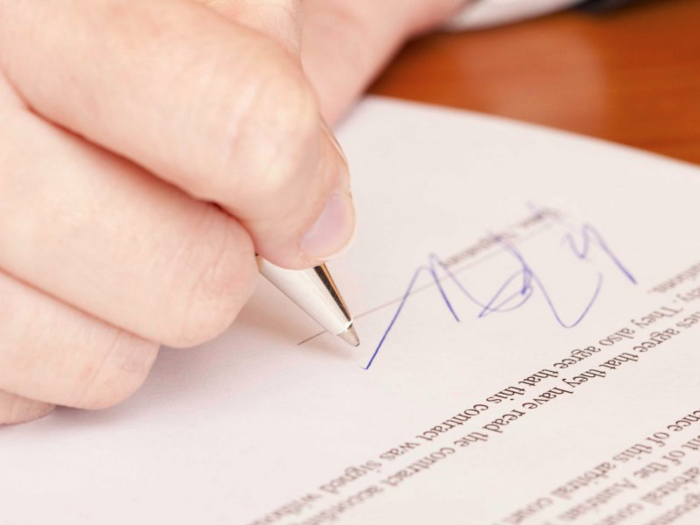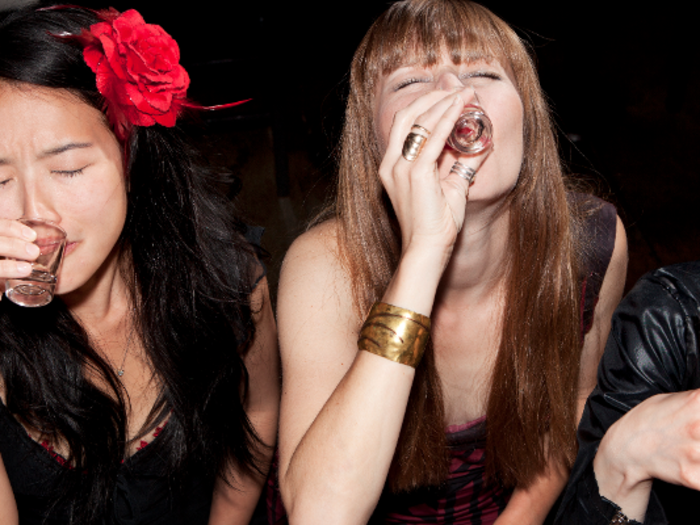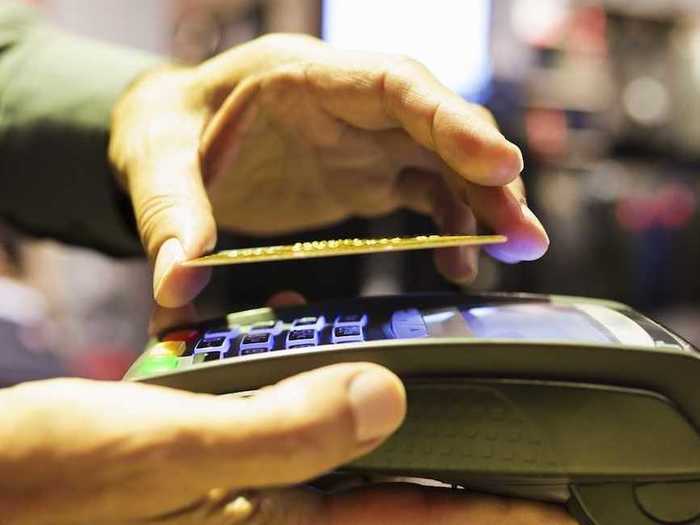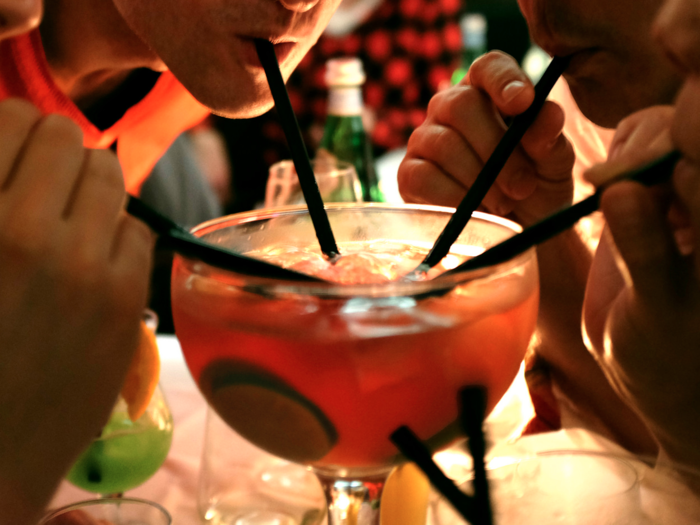9 strategies employers use to keep people from drinking too much at the holiday party
1. Provide drink tickets

2. Set expectations of good behavior up front.

Van Vlymen says there tends to be an uptick in sexual harassment complaints following holiday parties where heavy drinking is involved, which is why her company advises clients to remind employees beforehand that the handbook policies on harassment still stand and drunkenness isn't a valid defense for such behavior.
"To encourage professionalism at your office party, it is okay to set expectations beforehand," Dixon says. "In a kind and non-threatening manner, ask employees to limit alcohol consumption at the celebration, reminding them that inappropriate behaviors take away from team bonding."
Meredith Hurst, a partner at Thomas Mansfield, an employment law consulting firm, says a gentle reminder usually does the trick without putting the dampeners on the party. "In the vast majority of cases, trusting staff to act in the right way can reap its own rewards," she tells Business Insider.
Another tack Van Vlyme says some employers take, though, is to ask employees to sign an acknowledgment of the handbook policies on harassment and discrimination prior to the start of the party.
3. Don't offer hard liquor.

A quarter of the human resources professionals surveyed reported they would only serve certain types of alcohol, like beer or wine.
"There is a major upside in preventing employees from being overserved by prohibiting shots at the open bar," Van Vlymen says.
4. Don't make drinking the main event.

While alcohol can still be part of the celebration, Dixon says some companies play down its role by diversifying activities.
Employees are able to have fun together away from the bar with things like ice skating, going to a sporting event, or volunteering as a team, which can then be followed by a happy hour or dinner.
5. Make employees pay for their alcohol.

Almost 20% of employers surveyed by SHRM said they would only offer a cash bar.
6. Serve alternatives to booze.

Ensuring there's enough food for the group or providing festive, non-alcoholic drink options can also limit or buffer alcohol consumption at holiday parties, Dixon says.
7. Invite the family.

More and more company holiday events include children, Cohen says: "Having kids there makes it far easier to limit availability of alcohol, and it also encourages proper behavior."
8. Strategize the day and time.

Dixon says employers sometimes opt for daytime events like in-office lunches, which makes it easier to not serve alcohol.
Other employers may hold the party on a weeknight with the idea that employees will party more responsibly when they have work the next day.
9. Forgo alcohol entirely.

Perhaps the most obvious solution to the issue of inebriation is not offering alcohol at all, which, as we already reported, is a fairly popular option for employers.
In addition to eliminating a major liability, another upside for employers not serving alcohol is that parties will cost much less to host.
Popular Right Now
Popular Keywords
Advertisement